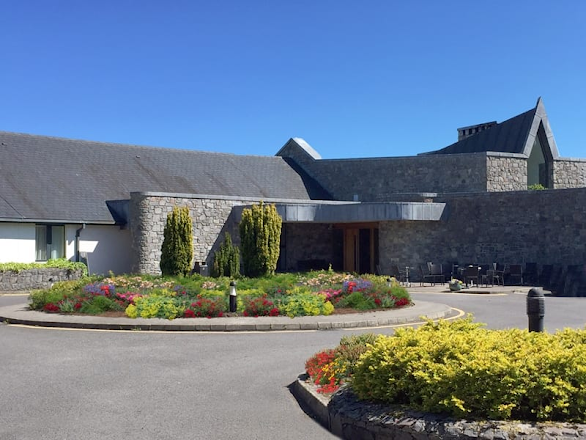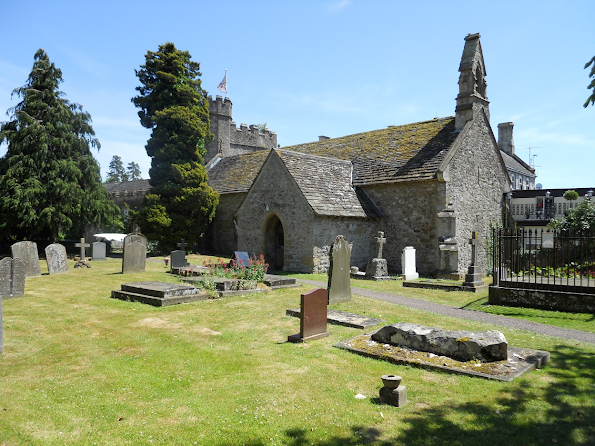WE KNOW WE ARE GETTING OUT JUST IN TIME
Saturday, June 18, 2022
Thursday, June 16, 2022
REMEMBERING MY TIME WITH THE PRIESTS OF IRELAND
At the end of May 2009, I had the honor of leading the priest retreat for the Archbishop and priests of the Archdiocese of Tuam in Ireland. I flew into Shannon from Cincinnati because we were meeting at the Shrine of Our Lady of Knock. The Shannon Airport, a small airport, had been a project of a local priest who wanted to bring in tourists to the shrine. Archbishop Michael Neary, a humble and gentle man, was their bishop at the time of my retreat. He has only recently retired.
Shrine of Our Lady of Knock Priests of the Archdiocese of Tuam on Retreat at Knock
Archbishop and myself in the center of front row
Archbishop Michael Neary. Archbishop of Tuam,
retired early this year
Tuesday, June 14, 2022
REMEMBERING MY TIME WITH THE PRIESTS OF WALES
In June 2010, I had the great honor of leading the annual priest retreat for the Archdiocese of Cardiff at an old castle-turned-hotel outside Cardiff in Wales. Both myself and my talks were well received by the priests there.
Below is the old castle's Anglican chapel and cemetery.
Below is the main gate into the old castle complex.
My guest room was in the very corner below in what was once the castle's stables.I recently heard an old Welsh language song. It reminded me of our 2007 priest retreat. It's lyrics especially reminded me of the priests I met in Wales. Just read the lyrics and get a taste of what the people of that country value in one of their beautiful old hymns.
READ THE LYRICS IN ENGLISH BEFORE PLAYING THE WHOLE VIDEO
CALON LÂN
(A PURE HEART)
Calon Lân is a Welsh language song, originally written as a hymn in the early 1890s. Daniel James wrote the Calon Lân lyrics and John Hughes the tune. Daniel James was one of five children and was born on 23rd January 1848. His parents were Daniel and Mary who were married at Mynyddbach Chapel in 1844 and lived in Llangyfelach Road, Treboeth, Swansea. Later in life, Daniel used the Bardic name “Gwyrosydd”. John Hughes was born in 1872 in Pen y Bryn , Pembrokeshire and it was he that composed and harmonised the tune at the invitation of Daniel James.
BE SURE USE THE "ENLARGE" FEATURE AT THE BOTTOM RIGHT
Sunday, June 12, 2022
"YOU HAVE TO DO A LOT" vs "YOU DON'T HAVE TO DO ANYTHING"
Since we have been justified by faith, we have peace
with God through our Lord Jesus Christ.
Romans 5:1-5
Ever since Martin Luther reached a boiling point and put his foot down 400 years ago, Catholics and Protestants have perpetuated this myth: Protestants think that Catholics believe that they can earn your way to heaven by doing good deeds while Catholics think that Protestants believe that they can get to heaven just by believing in Jesus without ever having to do anything.
Part of the problem is that the Letter of James stresses the need for good works, while Paul’s Letters, including today’s second reading, stress the need for faith. The Letter of James says this: “Faith of itself, if it does not have works, is dead.” Paul’s Letter to the Ephesians (2:8-9) says this: “For by grace you have been saved through faith; and not of yourselves, it is a gift of God. it is not from works, so no one may boast.”
So, which is it? Faith or good works? The short answer is that they cannot be separated. If you have faith, you will do good deeds. Good deeds are responses of gratitude for one’s faith. It’s not either/or, but both/and!
The Catholic Church, in fact, teaches us in the Catechism (161): “Believing in Jesus Christ is necessary for salvation. Without faith no one has ever attained eternal life.” Even Protestants would admit that the author of the Letter of James taught that justification is by faith alone, but also that faith is never alone. It shows itself to be alive by good deeds. A believer's good deeds are expressions of thanks to God for the free gift of salvation in Jesus Christ.
What caused the problem, of course, was not the teaching of the Church, but some of the practices of the Church. People like Saint Augustine and Saint Ambrose would have agreed with “salvation by faith,” as our present Catechism teaches, but the Church’s wide-spread practice of selling indulgences, as a means to salvation, in effect contradicted its own teaching. The practice basically said that if you give enough money to the church or to the poor or you did enough other good deeds, you could basically guarantee your way into heaven.
Now if I haven’t completely lost you yet, let me tell you about a couple of practical situations where I have seen this theological controversy of faith versus works played out.
When I was down in southern Kentucky as first pastor of Saint Peter Church in Monticello from 1975-1980, I ran into this trite old Protestant-Catholic misunderstanding head on. There was a lot of poverty in Wayne County in those days. I immediately set out to see what our church, hopefully in partnership with the Protestant churches, could do to help alleviate some of that poverty. I got nowhere.
I recruited two nuns who were “home health nurses.” They would go into the hills and hollars and offer simple health service. We opened a used clothing store. We had a fund to help the poor pay rent, utilities and food. Many of the churches thought we were selling some Catholic notion that if people did social work they could earn their way to heaven. After trying to involve them in some kind of ecumenical, cooperative effort, one day I was told “no” point blank that they did not believe in churches doing social service. I was told that the role of the church is simply to convert people to Jesus Christ – that salvation comes through faith, not through works.
We may have been the only church in the county offering practical help to the poor. The reason I think so is that I can still remember answering the phone one day when a caller asked me, “Is this the church that helps people?” We always understood our service work as an expression of our faith, not a means to salvation. We were perceived as a church who did not believe in “salvation by faith.”
I see this controversy played out more and more at Catholic funerals these days. The American wedding industry has about ruined the Sacrament of Marriage as a religious experience and now the Funeral industry is doing its best to highjack funerals as a religious experience. What I am talking about specifically is the spreading practice of multiple “eulogies” after communion at Catholic funeral Masses.
We should be very careful about giving "eulogies” at Catholic funeral because they can actually perpetuate the myth that we Catholics believe we can earn our way to heaven by doing good deeds. A “eulogy” is about all the things the deceased did for God. A “homily” is about what God did for the deceased. The assumption is that if the one doing the “eulogy” can list enough good things that the deceased did in this life, then the conclusion should be that he or she earned his or her way into heaven. “God, just look at all that he or she did for you! Surely, you owe him or her heaven for all those good deeds!” It perpetuates the myth that salvation can be earned by doing such good deeds. The point of a “homily” is not about what the deceased did for God, but about what God did for the deceased!
The real message of course, the teaching of the church, is this: salvation is a free gift of God for the taking! A good homily says, “See what God has done for this person by offering him or her salvation free of charge! Is it not wonderful what God has done for him or her, not is it not wonderful what he or she did for God?” After that message is preached loudly and clearly, then it is OK to list the responses the deceased made in appreciation for that free gift from God! A “eulogy” alone teaches bad theology, a bad theology that we have been trying to overcome for the last 400 years – a theology of salvation through good works!
One of the nastiest letters I have ever received came after a funeral homily I gave at the Cathedral. I had focused on all the wonderful gifts that God had showered on the deceased in his lifetime and how the deceased had responded to it in faith. The writer of that letter was not happy at all! She ripped me up one side and down the other, saying “I did not drive 200 miles just to hear about God! I wanted to hear about my uncle and all the good that my uncle did while he was here!”
I have been to a couple of funerals recently where I literally wanted to scream! One was at a priest funeral. I won't mention the others which were worse. After a fine homily, a well-planned and carefully executed funeral Eucharist, two family members got up and talked about how much the dead priest had gambled and drank. They joked like it was an after-dinner toast at a wedding rehearsal dinner! It was disgusting! They trivialized his whole life as a priest!
The reason for the rising popularity of “eulogies,” I believe, is that many people have quit believing in an afterlife. As a result, funerals are now turning into sappy, staged, privatized productions called “memorial services” or “celebrations of life,” focusing on “this life,” not “eternal life.” I saw a funeral home TV ad recently that bragged that they could “design a specialized service to fit the personality of the deceased.” It is almost coming to this! Did the deceased like balloons? We can do balloons! Did the deceased like chocolate? Then we can get you a casket that looks and smells like a brownie! Funerals are becoming less and less about praying for the deceased and more and more about relieving the grieving. Do we not hear people say more and more that “funerals are for the living?” The dead, we are subtly told, are only alive “in our memories” not in some afterlife. I wouldn’t be surprised if Peggy Lee’s famous song, “Is that all there is?,” will not soon beat out “Eagle’s Wings” or “Ave Maria” for the most requested funeral hymn!
Brothers and sisters! We believe that we are saved by grace! It’s all about what God does for us! As a response to the free gift of salvation, we need to show our appreciation by lives of loving service. However, we should never forget that our good deeds cannot “best” God! We can never “outdo” him! We don’t even need to! A living faith responds to that free gift, yes, but that living faith does not “earn” anything!
We need, not to just teach this and believe this, our practices should never contradict what we teach and believe!
Since we have been justified by faith, we have peace
with God through our Lord Jesus Christ.
Subscribe to:
Comments (Atom)












